Vocabulary enhancement Normal Elementary Phonics Worksheets for Ages 5-9
6 filtered results
-
From - To
Boost your child’s reading and writing skills with our Vocabulary Enhancement Normal Elementary Phonics Worksheets, designed specifically for children aged 5-9. These engaging and educational worksheets focus on building a strong foundation in phonics and vocabulary. They help young learners identify, understand, and use new words effectively, fostering language growth and reading fluency. By associating sounds with letters, kids can improve their pronunciation, spelling, and reading comprehension. Our worksheets offer a fun and interactive way for children to expand their vocabulary through various exercises, making learning an enjoyable and productive experience. Give your child the gift of language confidence today!
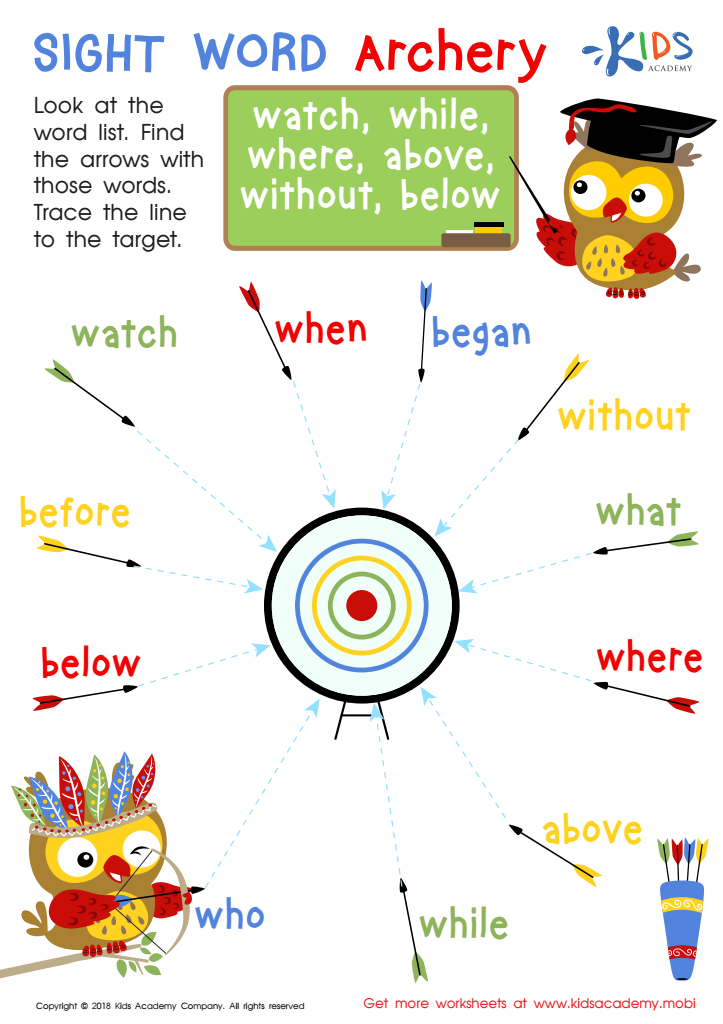

Sight Word Archery Worksheet
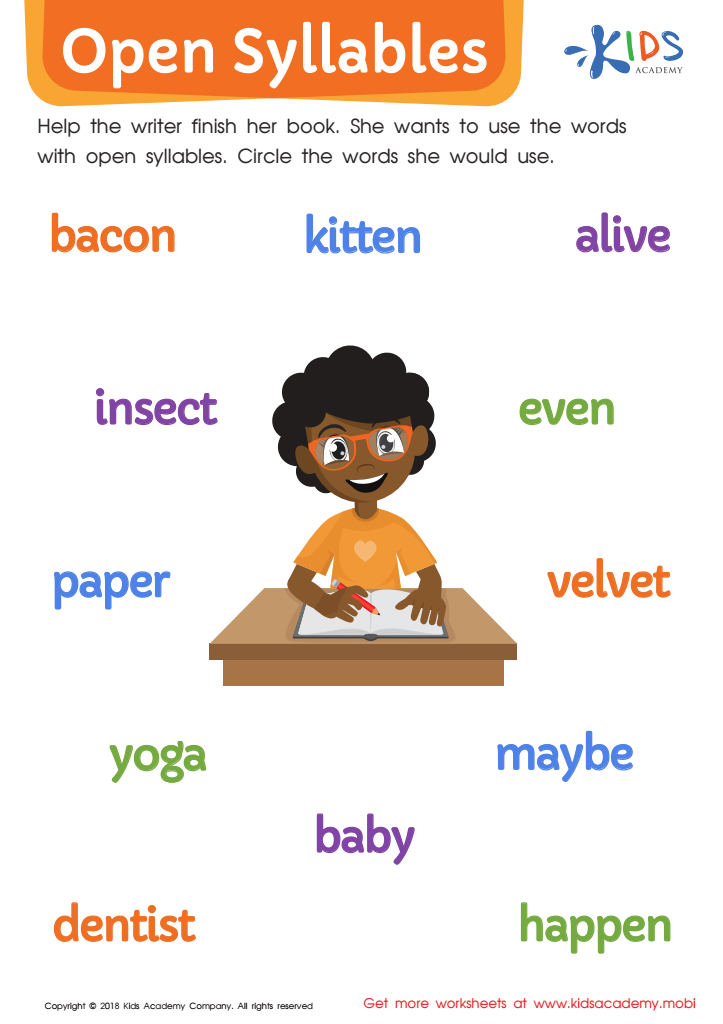

Open Syllables Worksheet
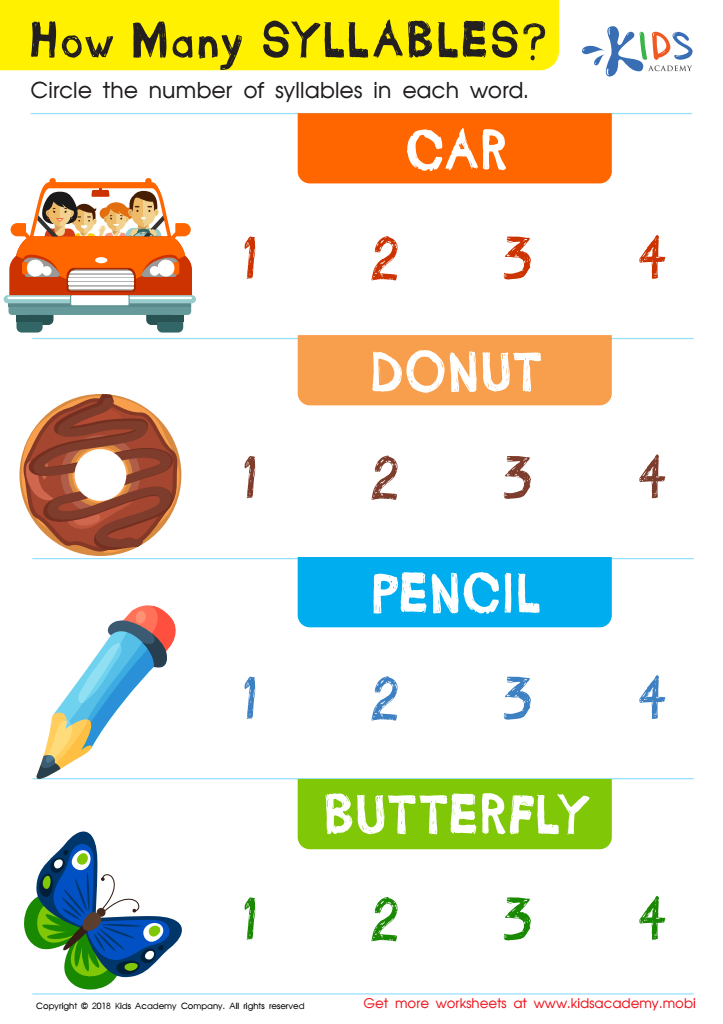

How Many Syllables? Worksheet
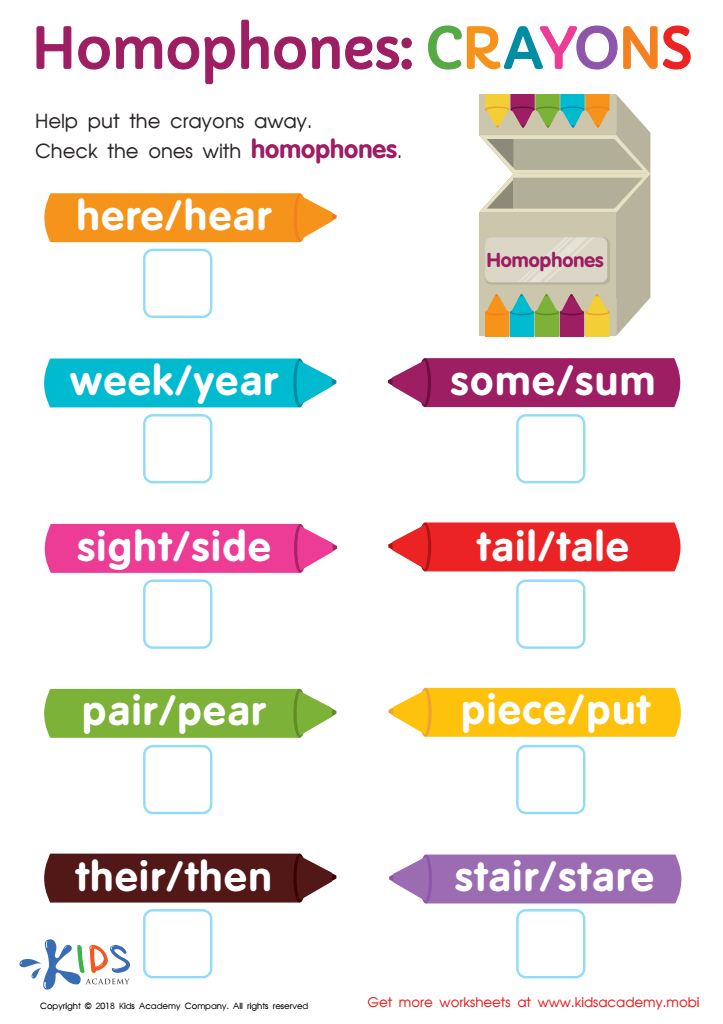

Homophones: Crayons Worksheet
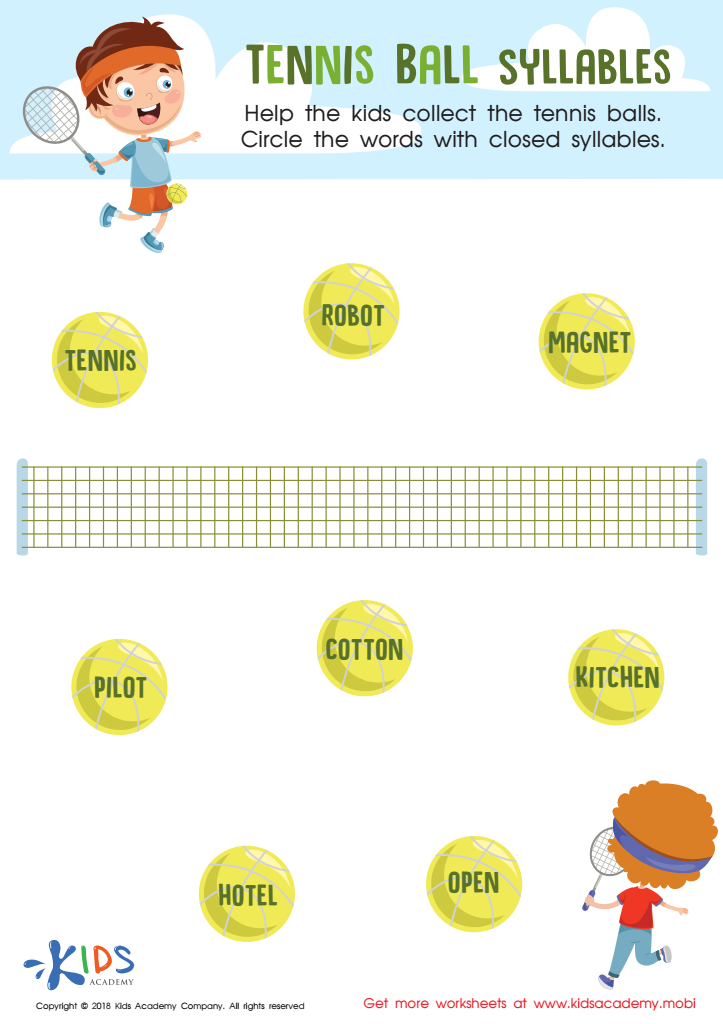

Tennis Ball Syllables Worksheet
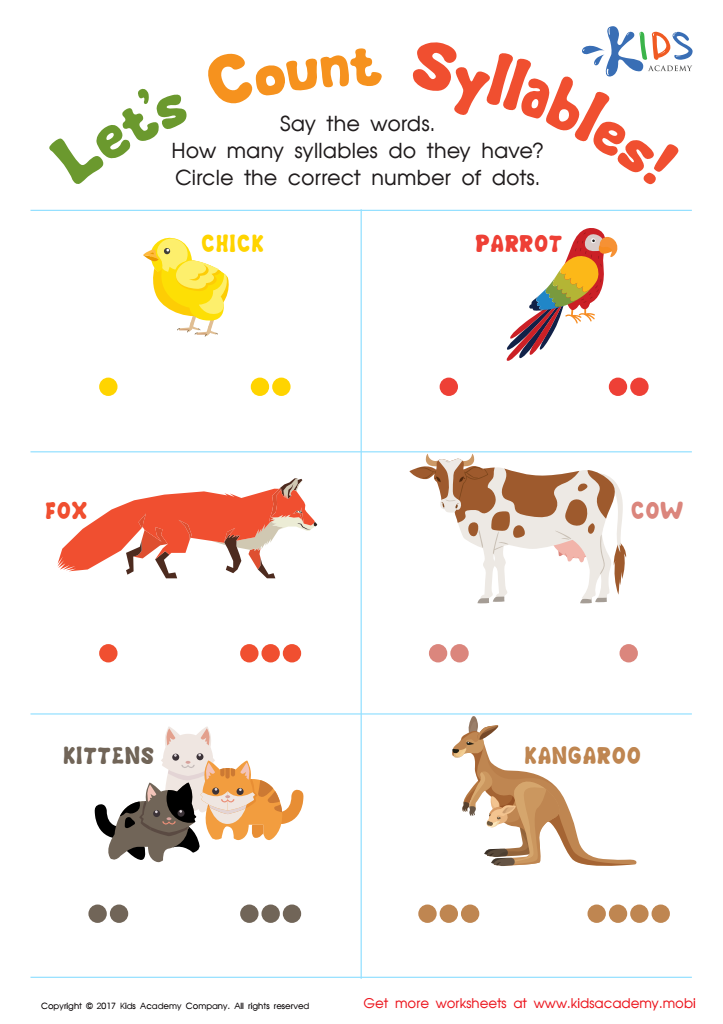

Lets Count Syllables Worksheet
Vocabulary enhancement in early elementary phonics for ages 5-9 is crucial to building a solid foundation for lifelong learning and communication. During these formative years, children's brains are highly adaptable and capable of learning at a rapid pace. By focusing on enriching vocabulary at this stage, parents and teachers ensure students have the tools necessary for understanding more complex language structures as they progress through their education.
A strong vocabulary facilitates better reading comprehension and allows children to express themselves more clearly and accurately. When kids understand the meaning of the words they encounter, they can better grasp the context of stories, follow instructions, and participate more effectively in discussions. Advanced phonics instruction aids in decoding new words, thus fostering independent reading skills.
Furthermore, verbal proficiency is directly linked to academic achievement across all subjects, not just language arts. Science, math, social studies, and even arts education rely heavily on subject-specific terminology. An enriched vocabulary supports critical thinking and encourages curiosity, enabling children to ask more insightful questions and seek deeper understanding.
In essence, prioritizing vocabulary enhancement in early elementary years empowers children with critical linguistic and cognitive skills. This foundational work spills over into all areas of learning, setting the stage for future academic success and effective communication.
 Assign to My Students
Assign to My Students









